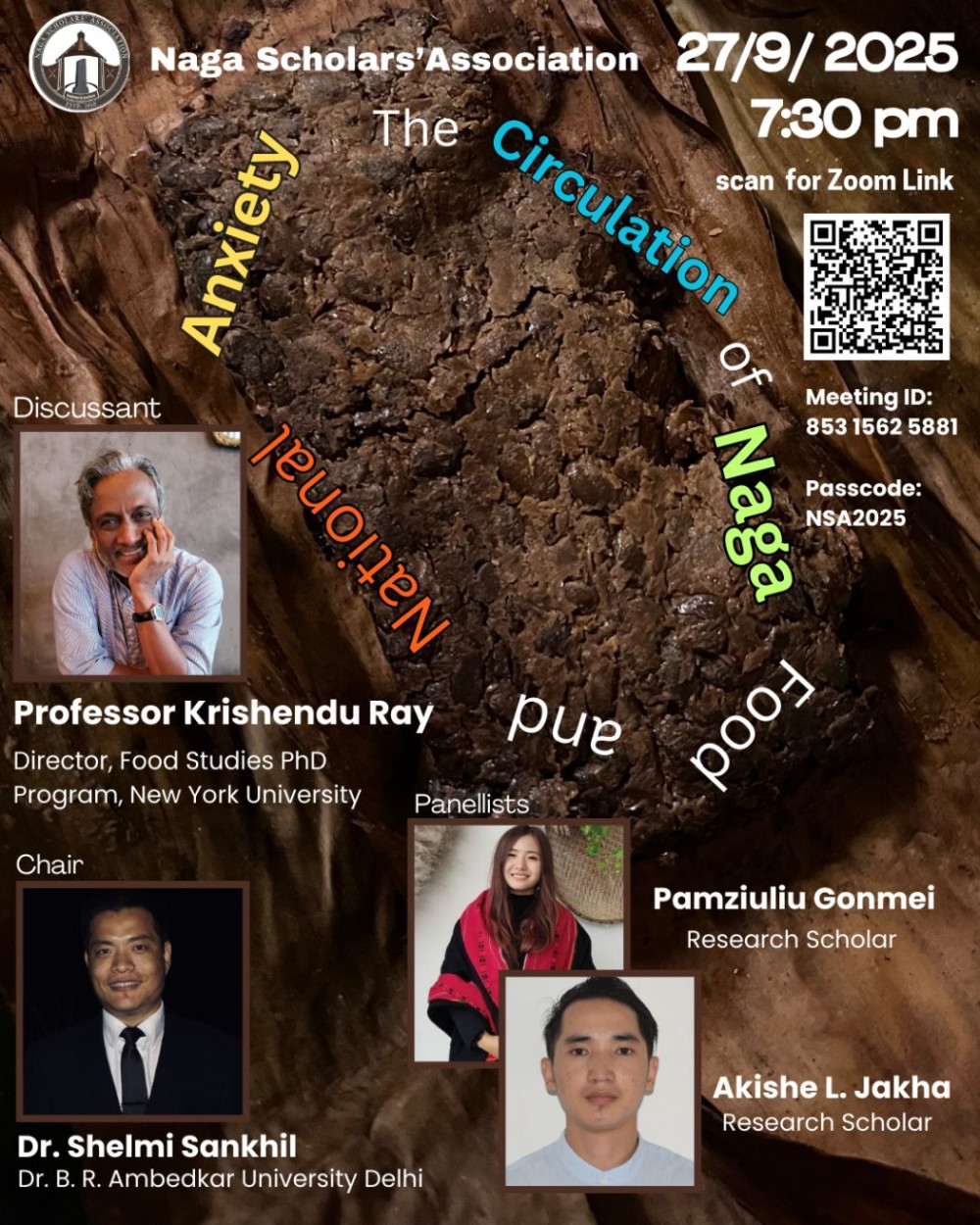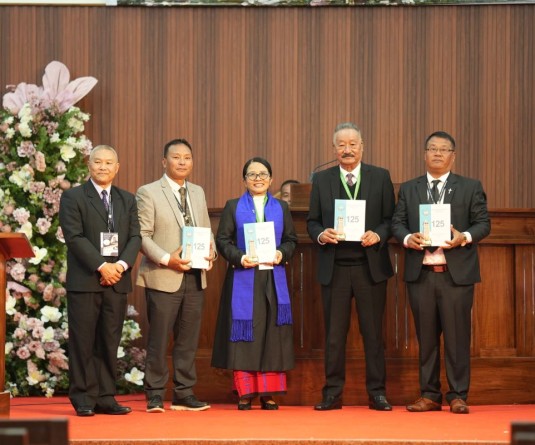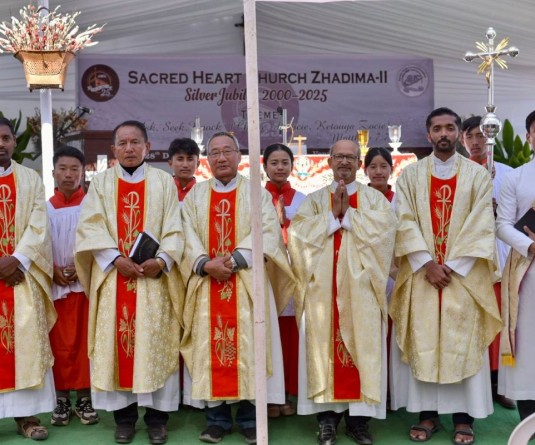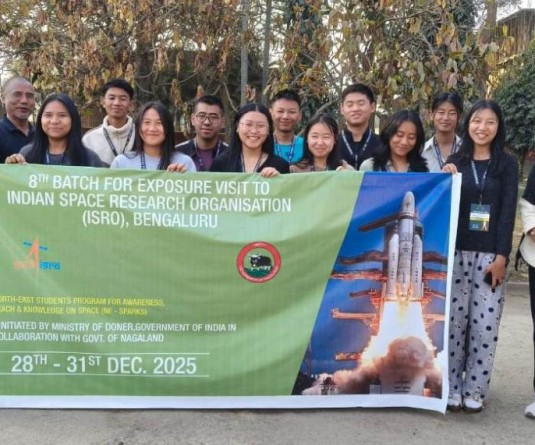
Dimapur, September 29 (MExN): The Naga Scholars Association (NSA) on September 27 organised an online panel discussion on “The Circulation of Naga Food and National Anxiety,” drawing together scholars and researchers to critically examine how Naga food practices intersect with identity, discrimination, and representation.
The session was chaired by Dr. Shelmi Sankhil of Dr. B.R. Ambedkar University. Prof. Krishnendu Ray, Director of the Food Studies PhD Program at New York University, joined as the discussant. The panelists were Akishe L. Jakha, a researcher at Sarai, CSDS, and Pamziuliu Gonmei, a doctoral candidate in Cinema Studies at the School of Arts and Aesthetics, JNU. The discussion was coordinated by the NSA Joint Secretary Dr. Haineube Newme, with the welcome address delivered by NSA General Secretary Dr. Apila Sangtam. Rapporteurs for the event were Ropfuvino Krose and Newlandson S. Angam. Nearly 80 participants attended the session.
Jakha began his paper presentation titled “Can’t Eat in Peace” by recounting the attack on two Nagas for selling non-vegetarian and Northeastern food in Ahmedabad, Gujarat. Drawing from this incident, he argued that Nagas experience discrimination against their food culture by “the mainland” which dishonours both the labour of preparation and the culture itself. He contended that such acts enforce a monolithic food identity and expose intolerance toward diversity. Drawing from experiences of Naga tenants facing scrutiny from landlords and neighbours in Munirka, Delhi, he said that while food is inseparable from identity and collective memory, in urban spaces it becomes a site of contestation, surveillance, and stigma. He also highlighted the stereotyping of Nagas as “savages” or “cannibals,” citing a cab driver who asked him if Nagas eat people and the 2017 story “Bhoj” by Debarathi Mukhopadhyay, which depicted Nagas as cannibals.
Jakha further discussed how racism and discrimination play out through food and its perceptions, referring to regulatory laws such as Nagaland state’s ban on dog meat which led to Naga students in university spaces such as JNU eating in secret to avoid harassment. He pointed to political debates, such as those between a Tamil Nadu governor and MLA, framing Nagas as “uncivilised” for their food practices.
Gonmei in her presentation emphasised the importance of “nuances” in presenting Naga food and the risk of erasure of the unique practices of the different Naga tribes if nuances are overlooked. She expanded on the dangers of curating, presenting, and privileging only the food practices of a few major tribes when trying to present “Naga Food” in the mainstream. Drawing from her Rongmei community, she highlighted the gendered dimensions, taboos, and superstitions attached to food. She concluded with a proposition for everyone to think and write further on issues such as gender, supernatural superstitions, and internal and external conflicts within the Naga context when engaging with Naga food practices.
Responding to the two papers, Prof. Ray praised the framing of “can’t eat in peace” as an entry point to the circulation of anxiety and related it to the weaponisation of taste in South Asia, particularly in India, where commensality has historically been marked by caste, race, and violence. On Gonmei’s paper, he emphasised the relationship between food and language, noting how bodily experience transforms into expression, and raised questions of authenticity, representation and politics of performance. He further linked Naga food practices to broader discussions on heritage-making, appropriation, and pre-national and pre-colonial continuities. He concluded that “Food, is not only a matter of taste but of subject-making, intersubjective relations, and cultural politics.”
The Q&A session examined why Naga food faces greater stigma than other cuisines. The panelists and discussant cited disproportionate targeting and racialised perceptions as reasons for this stigmatisation. Other questions addressed exoticisation, patriarchy, and the gendering of food, with Gonmei urging closer attention to these nuances.
The event concluded with the panellists and discussant calling for more academic discussions and writings on the politics and practices of Naga food.





